Sociology and Society Chapter Notes | Sociology Class 11 - Humanities/Arts PDF Download
What is Sociology?
Sociology studies human society as an interconnected whole and how society and the individual interact with each other.
- One of the tasks of sociology is to unravel the connection between a personal problem and a public issue.
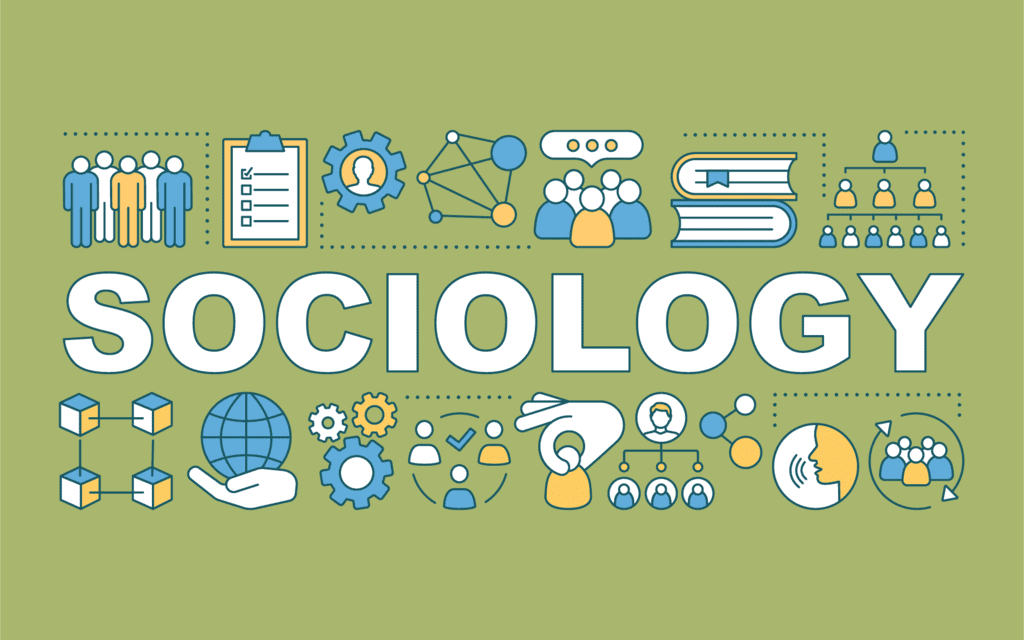
- It tries to understand that the individual in modern times belongs to more than one society and how societies are unequal.
- Thus, sociology is a systematic study of society, distinct from philosophical and religious reflections, as well as our everyday common sense observation about society.
- This distinct way of studying society can be better understood if we look back historically at the intellectual ideas and material contexts within which sociology was born and later grew.
The Sociological Imagination: The Personal Problem And The Public Issue
C. Wright Mills rests his vision of the sociological imagination precisely in the unravelling of how the personal and public are related.
- The sociological imagination enables us to grasp history and biography and the relations between the two within society.
- The most fruitful distinction with which the sociological imagination works is between ‘the personal troubles of the milieu’ and ‘the public issues of social structure’.
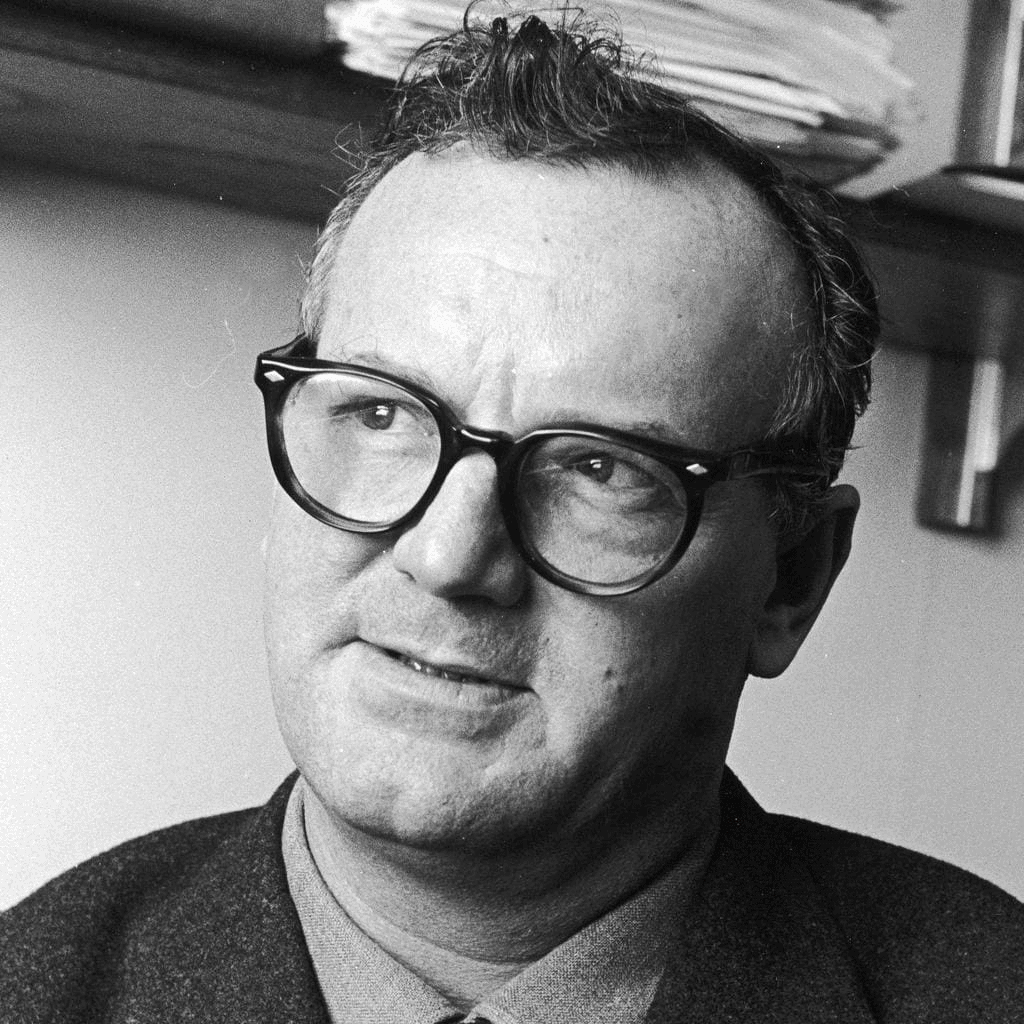 C. Wright Mills
C. Wright Mills
- Troubles occur within the character of the individual and within the range of his immediate relations with others; they have to do with his-self and with those limited areas of the social life of which he is directly and personally aware.
- Issues have to do with matters that transcend these local environments of the individual and the range of his inner life.
- The facts of contemporary history are also facts about the success and the failure of individual men and women. When a society is industrialized, a peasant becomes a worker; a feudal lord is liquidated or becomes a businessman.
- Neither the life of an individual nor the history of a society can be understood without understanding both.
Pluralities and Inequalities Among Societies
In the contemporary world, we belong to more than one society.
- When amidst foreigners reference to 'our society' may mean 'Indian society', but when amongst fellow Indians we may use the term 'our society to denote a linguistic or ethnic community, a religious or caste or tribal society.
- Inequality is central to differences among societies. Some Indians are rich, others are not.
 Homeless Family
Homeless Family
- Some are educated, others are illiterate, some have great opportunities for advancement in life: others lack them altogether.
- We may use the term ‘our society’ to denote a linguistic or ethnic community, a religious or caste or tribal society. This diversity makes deciding which ‘society’ we are talking about difficult.
Introducing Sociology
The term sociology was coined by Auguste Comte, a French philosopher and sociologist, in 1839. He is known as the ‘Father of Sociology’ as he is considered to be the first thinker who defined the scope of sociology as a discipline.
- Sociology is the youngest of all social sciences.
- The word Sociology is derived from the Latin word ‘socius’ meaning ‘companion or associate (society)’ and the Greek word ‘logos’ meaning ‘study or science’. Thus, the etymological meaning of ‘Sociology’ is the ‘science of society.
- Sociology is the study of human social life, groups, and societies. Its subject matter is our own behavior as social beings.
- Sociology is not the first subject to study society. This is evident in the writings of philosophers, religious teachers, and legislators of all civilizations and epochs. Thinking about our lives and about society is by no means confined to philosophers and social thinkers. All of us do have ideas about our own everyday life.
- The observations and ideas that sociology as a discipline makes about ‘society’ is different from both that of philosophical reflections and common sense.
- Sociology is thus, the systematic or scientific study of human society and social behavior, from large-scale institutions and mass culture to small groups and individual interactions.

Sociological and Philosophical and Religious Thinking
- Philosophical and religious thinking is concerned with the moral and immoral aspects of human behavior, the desirable way of living, about a good society, etc. based on their observations and experience.
- These thinking are based on the norms and values as they ought to be in society. It is about modeling a good society and differentiating it from a bad society.
- Sociology also studies human society and aspects of human behaviour but it is not about the norms and values as they ought to be.
- As a discipline, it is concerned with the way the norms and values function in actual societies based on observations and findings collected.
- The empirical study of societies is an important part of what sociologist do.
- When sociologists are studying society they must be willing observe and collect findings whether it is to their likings or not.
- Sociological thinking is bound by scientific procedures.
- The statements that sociologists arrive at should be through observations of certain rules of evidence that allow others to check or repeat to develop the findings further.
Sociology and Common Sense Knowledge
The common-sense knowledge that we have are based on our ‘naturalistic’ and/or individualistic explanation.
- It is acquired from a particular viewpoint, the viewpoint of the social group and the social environment that we are socialized into. This knowledge is gained from our own experience of society.
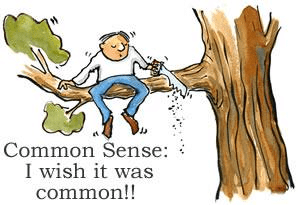
- A naturalistic explanation for behaviour is based on the assumption that one can identify ‘natural’ reasons for behaviour. Most of our actions are based on a naturalistic explanation of human behavior and might lead to unintended consequences.
- Common sense is not reflective and doesn’t question its own origin.
- Sociology, on the other hand, breaks away from common sense observations and ideas. It works on meaningful explanation and unsuspected connections of our actions with our behavior.
- Sociological thinking is based on ‘Why I hold a specific view about a particular behavior or a social issue’.
- This systematic and questioning approach of sociology is derived from a broader tradition of scientific investigation.
The Intellectual ideas that went into the Making of Sociology
Sociologists and social anthropologists sought to categorize societies into types and to distinguish stages in social development. These features reappear in the 19th century in the works of early sociologists, Auguste Comte, Karl Marx, and Herbert Spencer.
- Efforts were therefore made to classify different types of societies on that basis, for instance: Types of pre-modern societies such as hunters and gatherers, pastoral and agrarian, agrarian, and non-industrial civilizations. Types of modern societies such as the industrialized societies.
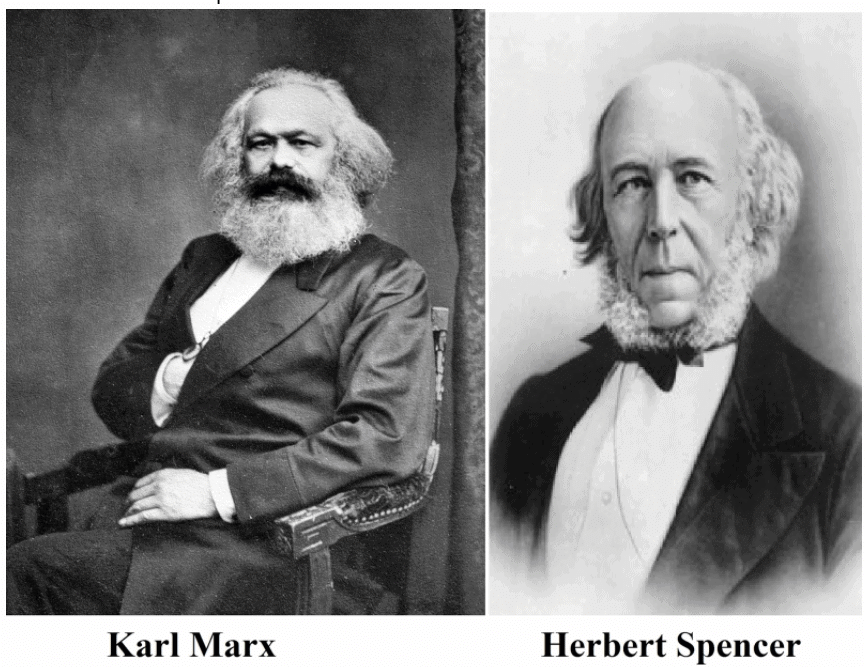
- Such an evolutionary vision assumed that the west was necessarily the most advanced and civilized. Non- western societies were often seen as barbaric and less developed. Indian sociology reflects this tension which goes far back to the history of British colonialism and the intellectual and ideological response to it.
- Darwin’s ideas about organic evolution were a dominant influence on early sociological thought. Society was often compared with living organisms and efforts were made to trace its growth through stages comparable to those of organic life.
- This way of looking at society as a system of parts, each part playing a given function influenced the study of social institutions like the family or the school and structures such as stratification.
- The intellectual ideas that went into the making of sociology have a direct bearing on how sociology studies an empirical reality.
- The Enlightenment, a European intellectual movement of the late 17th and 18th centuries emphasized reason and individualism. There was also great advancement of scientific knowledge and a growing conviction that the methods of the natural sciences should and could be extended to the study of human affairs. For example, poverty, so far seen as a ‘natural phenomenon, began to be seen as a ‘social problem’ caused by human ignorance or exploitation.
- Auguste Comte believed that sociology would contribute to the welfare of humanity.
The Material Issues into the Making of Sociology
The Industrial Revolution was based upon a new, dynamic form of economic activity capitalism. This system of capitalism became the driving force behind the growth of industrial manufacturing.
- Capitalism involved new attitudes and institutions. Entrepreneurs now engaged in the sustained, systematic pursuit of profit. The markets acted as the key instrument of productive life. And goods, services, and labour became commodities whose use was determined by rational calculation.
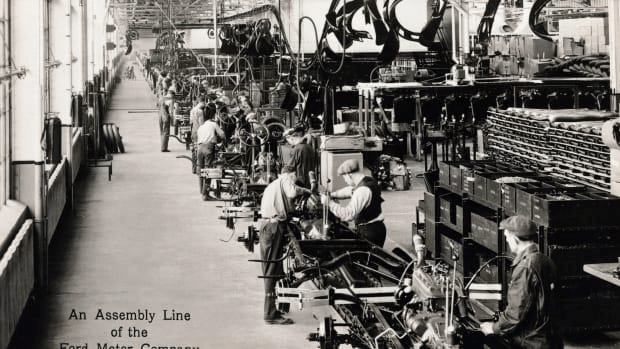
- The change industrialization brought about was far-reaching and changed the structure of the pre-industrial society. There was the degradation of labour, the wrenching of work from the protective contexts of guild, village, and family.
- Both the radical and conservative thinkers were appalled at the decline of the status of the common labourer, not to mention the skilled craftsman.
- Urban centres expanded and grew. It was not that there were no cities earlier. But the industrial cities gave birth to a completely new kind of urban world. It was marked by the soot and grime of factories, by overcrowded slums of the new industrial working class, bad sanitation, and general squalor. It was also marked by new kinds of social interactions.
- The factory and its mechanical division of labour were often seen as a deliberate attempt to destroy the peasant, the artisan, as well as family and the local community. The factory was perceived as an archetype of an economic regimentation hitherto known only in barracks and prisons.
- For some like Marx the factory was oppressive. Yet potentially liberating. Here workers learned both collective functioning as well as concerted efforts for better conditions.
- Another indicator of the emergence of modern societies was the new significance of clock-time as a basis of social organization. A crucial aspect of this was the way in which, in the 18th and 19th centuries, the tempo of agricultural and manufacturing labour increasingly came to be set by the clock and calendar in a way very different from pre-modern forms of work.
- Prior to the development of industrial capitalism, work rhythms were set by factors such as the period of daylight, the break between tasks, and the constraints of deadlines or other social duties.
- Factory production implied the synchronization of labour it began punctually, had a steady pace and took place for set hours and on particular days of the week. In addition, the clock injected a new urgency to work.

Relevance of studying the beginning and growth of sociology in Europe
For every student of sociology, it is significant to study the growth of sociology as a discipline in Europe. This is due to the very fact that the subject matter of sociology deals with issues and concerns developed in the new world order.
- These issues and concerns were developed during the rapid changes that occurred in European societies in the 18th and 19th centuries.
- Capitalism and industrialization which developed in Europe undermined the old settled order and gave rise to many issues like urbanization or factory production which are pertinent to all modern societies in varied form. The global impact of capitalism has been seen as the cause of the uneven transformation of societies.
- Sociology emerged as a subject after the French Revolution of 1789. The French Revolution brought about a tremendous socio-political change in society, leading to disruption of social life and other social relations.
- In case of India, transformation of Indian society is linked to the history of British capitalism.
- Thus, the work of the western sociologist on capitalism and other aspects of modern society are important. It is relevant for understanding the social change in India.
The growth of sociology in India
During the course of their rule in India, the British officials realised that for smooth administration, it was important that they acquire knowledge of Indian society and culture. This prompted the origin of Sociology in India.
- Western sociological writings about Indian society were sometimes misleading. For instance, the understanding and portrayal of the Indian village was unchanging. Many Indian scholars thus, took to sociological studies to close such gaps.
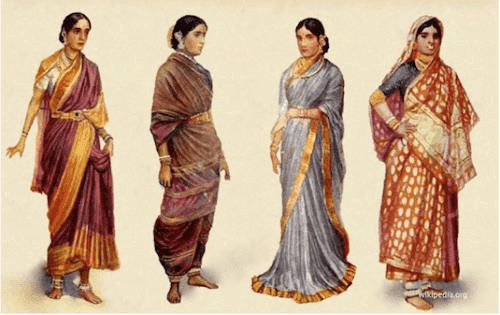 Globalization of Indian Culture
Globalization of Indian Culture
- The diversified nature of the Indian society in terms of region, language, religion, ethnicity, caste, etc also led to the growth of sociology in India in connection with the discipline of social anthropology. This is a characteristic feature different from that of the western countries where both disciplines have been kept distinct from each other.
- Indian sociologist realised that the transformation process of contemporary Indian society is different from that of the western society. Modernity as understood in the western European society is the outcome of scientific process and democratic ideas. Wheres as the same process of modernity was introduced in Indian society under the colonial regime.
Scope of sociology
The scope of sociology is extremely wide and it focuses its analysis on several aspects of the society and can be about mere individual interactions to larger social issues.
- The scope of sociology and its focus of analysis can be broadly classified into three categories:
- At the level of human interactions, the scope of study might focus its analysis on interactions between two individuals at different social environment, such as between a shopkeeper and customers or between friends and family members.
- National issues or issues impacting the larger public might include its focus of analysis for instance on social phenomena such as unemployment, caste conflicts, rural indebtedness, effects of forest policies on tribals’ rights, etc. These are issues specific to one particular society or a nation.
- Global social processes are those which are impacting the larger human population. While studying such phenomena, the focus of analysis for sociologists might include; impact of flexible labour regulations, globalisation of culture, entry of foreign universities on education system of the country, etc.

Relationship with other social sciences
Sociology belongs to the group of social sciences which includes anthropology, economics, political science, history, etc.
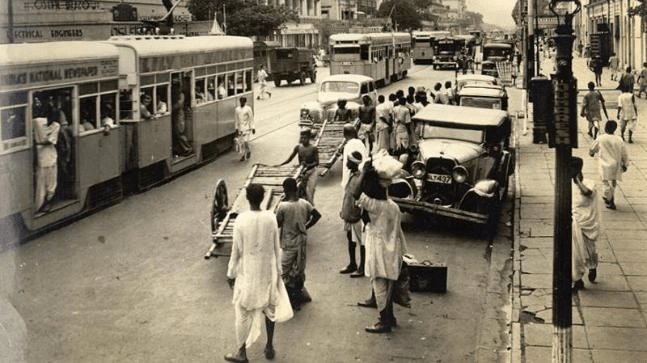
- There is no clear-cut distinction between these subjects as they share certain common concepts, interests and methods.
- However, there is a difference between these disciplines in terms of their view point and the selective interest.
Sociology and History
Sociology and History are closely and intimately related to each other. Sociology cannot be separated from History and History cannot be isolated from sociology.
- That is why Professor G.E. Howard remarked “History is the past Sociology and Sociology is the present History”, John Seely says that “History without Sociology has no fruit, Sociology without History has no root”.
- However, there is a difference between the two in terms of selective interests.
- History, as a rule, studies mostly the past. Conventional studies delineate the actual events or fail to establish how things actually happened. It studies concrete details of events.
- Conventional history was also about the history of kings and war. It is systematic record of the story of mankind. It presents a chronological account of past events of the human society.
- Sociology on the other hand seeks to establish causal relationship between events. It is more likely to derive abstract from concrete reality, categorise and generalise. Areas like history of less glamorous events such as changes in land or gender relations formed the core area of sociologists interest.
Sociology and Political Science
Sociology and political science are so closely and deeply related to each other that one becomes meaningless without the other.
- According to Morris Ginsberg ”Historically, Sociology has its main roots in politics and philosophy of history”. The state, which is the centre of political science in its early stage, was more of a social than political institution.
- However, conventional studies of political science focused on political theory and government administration. It restricted itself to the study of power embodied in formal organisation. It pays attention to the formal structure and processes within the government.
- Sociology on the other hand studies the actual operation of the government. It studies all aspects of society including government and stresses the interrelationships between different institutions. It focuses on the actual study of political behavior such as process of decision making, the role of gender in politics, etc.
Sociology and Economics
Sociology and Economics as social sciences have close relations. Relationship between the two is so close that one is often treated as the branch of the other, because society is greatly influenced by economic factors, and economic processes are largely determined by the environment of the society.
- Classical economics however, dealt with interrelations of pure economic variables such as price, demand, supply, etc.
- Traditionally, it was focussed on understanding of economic activity such as allocation of scarce goods and services in a society and activity in terms of ownership of land and relation to means of production.
- The dominant trend in economic analysis is about how to formulate laws of economic behaviour of a society.
- Sociology on the other hand looks at economic behaviour in a broader context of social norms, values, practices and interests. For example; the large investments in advertisements is directly linked to the need to reshape lifestyles and consumption patterns.
- It provides questioning and critical perspectives on basic assumptions of economic behaviour. It facilitates the need for a socially desirable goal. Sociology provides an understanding based on factual knowledge.
Sociology and Psychology
Sociology and Psychology are closely related with each other. Both are interrelated and inter-dependent.
- Often defined as the science of behaviour, it involves individual and his/her intelligence, learning process, motivation, personality, etc.
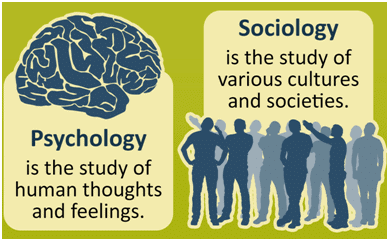
- Psychology is concerned with the exploration of the depth of man’s mind and behaviour in society. It is said that psychology shows the significance of the relationship between the organism (individual) and environment and the response of the former to the latter.
- It is defined as “the study of man’s mental life and behaviour”. It is the science of mind of mental processes.
- Sociology attempts to understand behaviour as it is organised in society, how personality is shaped by different aspects of society. It studies man’s social relationships.
Sociology and Anthropology
Anthropologists and sociologists are social scientists concerned with understanding the human condition, past and present, and equipped with the skills of developing rapport in unfamiliar situations, collecting and analyzing quantitative and qualitative data, thinking analytically at the macro and micro levels, and communicating effectively, both orally and in writing. However, these disciplines differ in terms of their selective interests.
- Anthropology studies all aspects of life in “simple societies” as a whole in a neutral scientific fashion. Anthropology is often characterized by the tradition of long fieldwork, living in a community, and uses ethnographic research methods.
- Sociology on the other hand studies complex societies and therefore focuses on parts of societies like religion, bureaucracy, or social processes such as social mobility. Sociology often relies on survey methods and quantitative data using statistics and questionnaire mode.
Some Solved Questions
Q.1. Why is the study of the origin and growth of sociology important?
Answer:
- The study of origin and growth of societies are important in sociology to understand several personal and social issues.
- England was the centre of industrial revolution. The understanding of how urbanisation or factory production influenced all modern societies is very important.
- Sociology of India reflects origin and growth of people, social institution and their problems. Indian history is full of imperialistic invasions. In India there has been a long past of feudalism, capitalism, and colonalisation.
- Indian history related to political, social or cultural domains is written by foreigners and therefore it is far from truth.
- Basically, it is biased. Therefore Sociology of India is also biased. Presently Indian society can be understood in its complexity of tradition which is influenced by Turks, Mongols, Kushan, Afghans, and Britishers, and the influence of the modern world. Indian sociology is a complex product of its history.
Therefore the study of the origin and growth of society is important for sociology.
Q.2. Discuss the different aspects of the term ‘society’. How is it different from your common sense understanding?
Answer:
- Society is the web of social relationships.
- Sociology is a system of usage and procedures of authority and mutual aid of many groupings and division of control of human behavior and of liberties. (Maciver and Page).
- This definition of sociology emphasizes that the main features of society are usage, procedure, authority, mutual aid, group and division, and liberties.
- Usage means accepted ways (norms) of the society.
- Procedure refers to social institutions like family or marriage which is important for social network.
- Authority means a system that controls the units of society (individuals) or maintains the social web.
- Groups and division mean groups and subgroups in which the individual interacts and learn social norms.
- Control of human behavior refers to social control and freedom to the individuals in the form of written or unwritten norms which are important for the smooth functioning of social network.
- Above mentioned elements are different aspects of society and the web of social relationships, according to Maciver and Page.
Q.3. Explain the concept of social facts.
Answer: There are ways of thinking, feeling, and acting that are experienced by individuals as external and constraining and that is general throughout the social group. Emile Durkheim emphasized social facts. He talked about individual and collective consciousness. All thoughts, ideas, or inventions developed by individuals, when accepted and adopted by a larger group became part of collective consciousness. He stated that society is external to man. It influences our entire life. We are part of society having our own specific place in the social system.
|
41 videos|94 docs|17 tests
|
FAQs on Sociology and Society Chapter Notes - Sociology Class 11 - Humanities/Arts
| 1. What is the definition of sociology and its significance in understanding society? |  |
| 2. How does the concept of the sociological imagination relate personal problems to public issues? |  |
| 3. What are the key pluralities and inequalities observed among different societies? |  |
| 4. Why is it important to study the origin and development of sociology in Europe? |  |
| 5. How does sociology differ from common sense knowledge? |  |

|
Explore Courses for Humanities/Arts exam
|

|


















